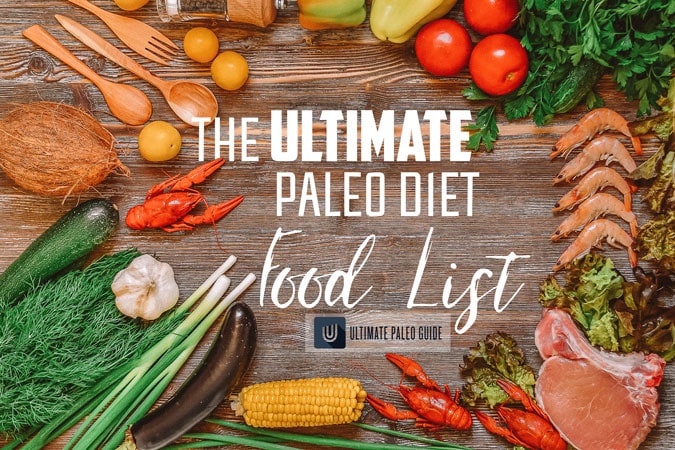
A Mediterranean diet is a lifestyle change that helps you lose weight and maintain a healthy heart. It includes more than a dozen heart-healthy ingredients, which will help you live longer and more healthy lives. Even though the diet is high in calories, it's also one of the most healthful. The best part? You can eat as much of this diet as you like, just make sure you are eating in the right amounts.
The Mediterranean diet is based upon the belief that eating a variety of food is the best way for heart disease prevention. This diet is rich in fruits and vegetables as well as healthy fats. Red wine and poultry are still allowed. This diet encourages the consumption of whole, nutritious foods as well as limiting processed, added sugars, and sodium. It promotes healthy eating habits and a healthy lifestyle.

While the Mediterranean diet contains small amounts of red meat, it also contains small amounts of nuts and eggs. Studies have shown that these foods reduce the risk of developing heart diseases by up to 30%. There are also benefits to the Mediterranean diet, such as a decreased risk of heart attack and stroke, and dementia. There are also many other benefits, and you can find out more about them by reading this Mediterranean diet review. You can also create a new lifestyle by incorporating these foods into your everyday life.
According to the American Heart Association, a review of Mediterranean diets shows many benefits for your health. It can lower your risk of hypertension or ischemic heart diseases, and it's especially beneficial for those with diabetes. The Mediterranean diet might not be right for everyone. Women should limit the amount of wine they consume to one 5-ounce bottle per day; men should drink no more than two glasses. Moderate dairy intake is another benefit of the Mediterranean diet. It's a high-fiber, fiber-rich diet that is full of nutrients.
The Mediterranean diet is also rich in fibre. Wholegrains are much more nutritious and filling than white bread. Even though the Mediterranean diet has low fat, it's high in monounsaturated and healthy fats. Because of this, it is less likely than other diets to lead to heart disease. It also has lower levels of saturated fat and trans fat. In addition, a Mediterranean diet is rich in antioxidants.

Antioxidants are another important part of the Mediterranean diet. Studies show that it reduces the chance of Alzheimer's and dementia. Its antioxidants can also fight harmful freeradicals. It has been proven that antioxidants found in the Mediterranean diet can protect the body from oxidative damages caused by free radicals. These free radicals have been linked to reduced risks of certain types cancers and heart disease. In this Mediterranean diet review, we will explore how to get the most out of the Mediterranean diet for diabetes.
FAQ
Which is the best order to exercise?
It all depends upon what you are trying to achieve. First, lift heavy weights if you are looking to increase muscle mass. Then, move on to cardio. If you are looking to lose weight, then move on to strength training.
Cardio is a great way to lose fat if you are just looking for a quick workout. You can then add strength training.
Cardio is the best way to build muscle mass.
You should also eat before your workout. This will fuel you muscles better, which will make it work harder. It will also make you feel more energetic during your workouts.
How many calories do I need to eat each day?
This will vary from person-to-person. On average, between 2000 and 2500 calories a day. You need to determine how many calories you need based on age, gender, height, weight, activity level, and lifestyle.
What is a good schedule for a 7-day work out?
A seven day exercise program should include cardiovascular training (running or biking), strength exercises (using freeweights, weight machines) and one flexibility/core workout. Each activity should be performed at least once each week. Maximum 45 minutes should be allotted for each session.
Cardiovascular Exercise: Running/Biking/Swimming
The goal is to get in at least 60 minutes of cardio activities per week. For best results, aim for 75 minutes per week. Cardio exercise can improve blood flow and stimulate muscle development.
Strength Training
While cardio exercises target the heart and lungs, strength training targets the muscles and bones. Strength training can help you burn calories even when you're not working out.
Flexibility & Core Workouts
Your whole body will be stronger if you have flexibility and core training. Both yoga and Pilates can be great choices.
What is the best workout routine to build muscle?
When you are building muscle mass, there are two main exercises you need to do. These are isolation exercises and compound moves. Isolation exercises target particular muscles, while compound movements focus more on several groups at once.
It is important to do exercises that work all of your major muscles groups. This will ensure that you work hard every session.
An app called MyFitnessPal allows you to keep track of everything. It lets you log everything from calories burned and weight lifting. It also allows you to create meal plans customized for your goals.
Do weightlifting burn fat faster?
Weight lifting will help you burn more fat, but it's best to combine it and cardio.
For the best results of weightlifting, do it after cardio exercises.
If done correctly, weightlifting can increase your heart rate and oxygen intake which in turn helps you lose weight.
You will not notice any changes in your body composition if you don’t combine it and cardio.
Statistics
- 10 pounds in a month is likely during a lean bulking phase, especially for beginners. (muscleandstrength.com)
- An estimated calorie range for moderately active adult males falls between 2,200 to 2,800 calories per day, depending on age. (eatright.org)
- Get free shipping and 25% off today. (healthline.com)
- According to the American Academy of Dermatology (AAD), men over 50 are at a heightened risk of developing it. (healthline.com)
- According to the American Heart Association, blood pressure should be checked at least once every two years, beginning at age 20. (my.clevelandclinic.org)
External Links
How To
What is the healthiest food for men?
Men should consume five portions of fruits and veggies per day. They should avoid fast food and limit red meat.
Vegetables and fruits are rich in antioxidants, which can protect against cancer and cardiovascular disease.
Vegetables include broccoli, cauliflower, carrots, spinach, tomatoes, peppers, cucumbers, lettuce, mushrooms, etc.
Beans and peas are high in fiber and protein as well.
A great source of omega-3 fatty acid is nuts and seeds. Essential for hormone production and brain function, omega-3 fatty acids are vital.
Another good source of omega-3s is fish. More mercury is found in fish than any other meats. However, fish liver oil does contain fewer toxins.
For normal growth and development, Omega-6s are required in vegetable oils such as soybean, sunflower, safflower and cottonseed oils.
Poultry is a good source for lean protein. Chicken breast is one the healthiest meats.
Lean beef has low levels of cholesterol and saturated fats. Avoid eating too many red meats as iron intake can increase the risk of developing prostate cancer.
Avoid sausages and hot dog. These processed meats contain nitrates that can cause cancer.
No doubt exercise is crucial for good health. But what if you're already working out regularly? Is there anything you can do that will improve your physical or mental health?
The answer is yes You have many options to maximize your workouts. Here are some tips for maximising your workout.
Start slow. You may hurt yourself if you push yourself too hard in your first session. Begin at a pace you're comfortable with, and then gradually increase your intensity.
Before and after. Stretching will help loosen tight muscles, reduce soreness, and improve flexibility. Stretching can take place standing, sitting, or lying down.
Cool down. This is especially important for cardio exercises. Your body needs time to recover between sessions, so it doesn't become tiring. Take deep, slow breaths to cool down.
Hydrate. Drinking plenty of fluids helps keep you hydrated and reduces muscle cramps. Water is the ideal drink, but sports drinks can also help.
Eat right. Be sure to eat enough calories each day. Eating regular meals throughout the day will help you stay energized and focused during your workout.
Get enough sleep. If you get adequate sleep, your body will be energized and ready to go for your next workout. Restoring damaged tissue is another important benefit of sleep.